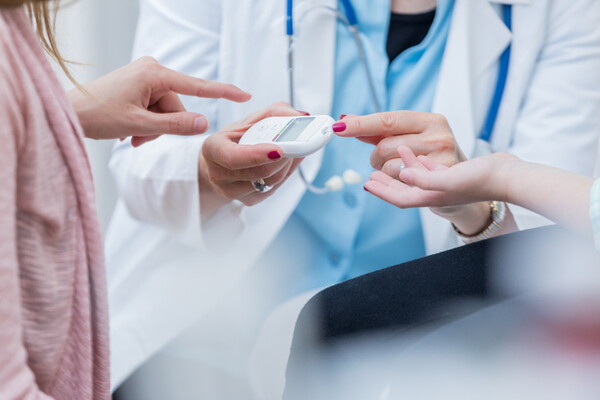While the initial symptoms of diabetes are commonly known as “polyuria (frequent urination), polydipsia (excessive thirst), and polyphagia (excessive hunger),” the true early symptoms of diabetes are actually different.
The earliest symptom is often asymptomatic. Diabetes is a condition where the body's ability to regulate blood sugar levels is impaired.

When diabetes develops, the sugar obtained from food is not properly delivered to the cells in our body, resulting in the cells not utilizing energy effectively. The unused blood sugar then causes inflammation in the walls of various blood vessels, leading to various vascular diseases.
“The true early symptom of diabetes is asymptomatic,” said Professor Jung Chang-hee of the Department of Endocrinology and Metabolism at Asan Medical Center on the hospital's YouTube channel. “This is because our bodies gradually adapt to rising blood sugar levels, and as blood sugar rises slowly, our bodies also adapt to the change, so we do not feel any discomfort.”
It is similar to a frog boiling slowly in water without realizing the danger. That is why diabetes is sometimes called the “silent killer,” Professor Jung added.
When diabetes is asymptomatic, improper blood sugar management can lead to symptoms, such as polyuria (excessive urination), polydipsia (excessive thirst), and polyphagia (excessive hunger). “The first initial symptom is feeling very thirsty and needing to urinate frequently,” Jung explained. Why does this happen, then?
When diabetes develops, the blood contains high levels of sugar, and the body tries to lower the sugar concentration in the blood by expelling the excess sugar from the body. This process increases urine output, leading to frequent urination. As fluids are continuously lost through urine, the body feels thirsty and drinks more water, according to Professor Jung.
The second early symptom of diabetes is feeling constantly hungry and losing weight despite eating well. “In diabetes, the sugar obtained from food cannot properly enter the cells throughout the body and is excreted. As a result, the cells lack energy and send signals indicating hunger, leading to increased food intake compared to usual,” Jung explained.
no matter how much you eat, the sugar cannot enter the cells and is excreted in the urine. The body begins to break down fat and muscle to obtain energy, resulting in weight loss even though you are eating more,” he added.
The third symptom is feeling easily fatigued and experiencing a lack of energy. Professor Jung explained, “In diabetes, cells cannot properly use sugar as an energy source, leading to energy deficiency. Even minimal activity can cause fatigue, and one may feel constantly tired and lacking energy. Additionally, frequent urination may disrupt sleep, leading to more severe fatigue.”
In addition to these symptoms, there are various other symptoms that can indicate diabetes. “Sudden blurred vision, slow healing of small wounds, numbness or abnormal sensations in the hands and feet, and dry, itchy, or cracked skin on the arms and legs are also possible symptoms. It is extremely important to recognize the signs that our bodies are sending us to indicate diabetes,” Jung explained.
Early management of diabetes is crucial because it can lead to various other health issues. Professor Jung warned, “If blood sugar levels are not properly managed over an extended period, especially in the early stages of diagnosis, it can result in vision loss, numbness in the hands and feet, and in severe cases, complications, including heart disease, stroke, and kidney disease.”
For this reason, prompt blood tests are recommended when symptoms of diabetes appear. Professor Jung advised, “If multiple symptoms related to diabetes appear together, blood sugar levels may already be significantly elevated, so it is best to visit a hospital immediately for a blood test. This is because diabetes can be managed more effectively through lifestyle improvements and appropriate medication when detected early.”
The most effective way to detect diabetes early is to undergo regular check-ups. Professor Jung emphasized, “The early symptoms of diabetes are asymptomatic, and not all diabetes patients experience symptoms, so it is extremely important to detect and manage diabetes early through regular checkups.”

